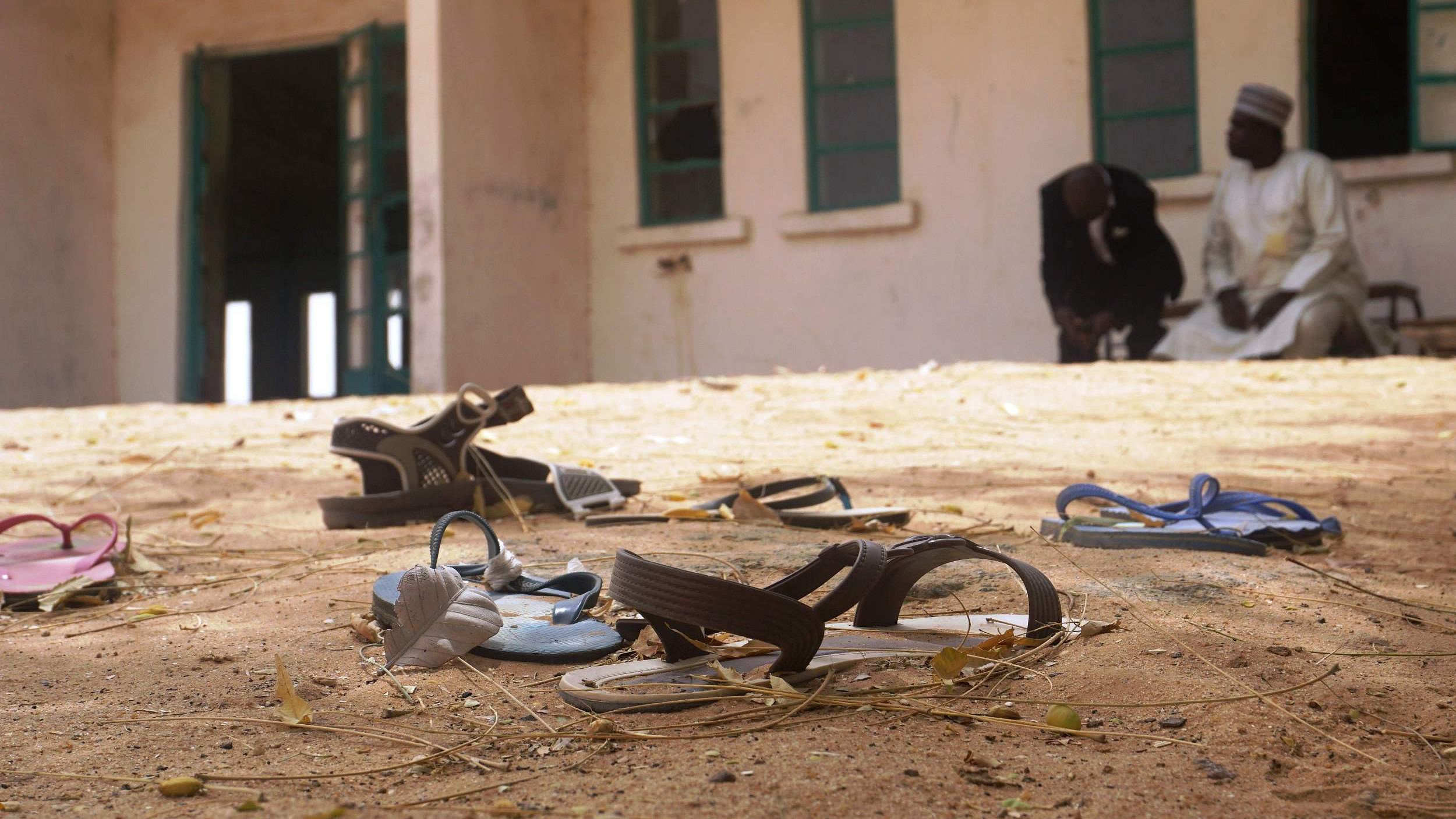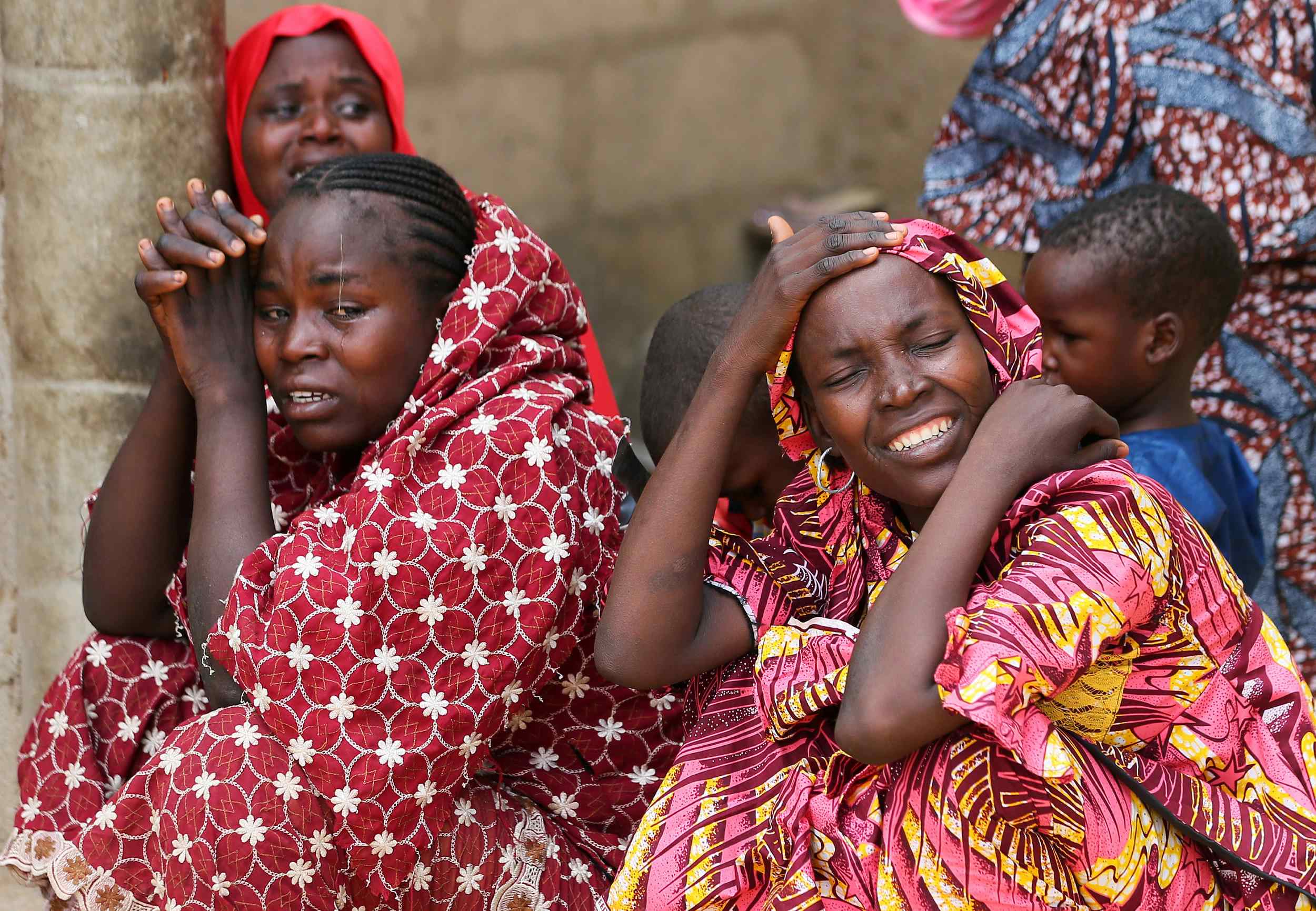
World
10:29, 28-Feb-2018
Experts say 110 schoolgirls kidnapped by Boko Haram is not exceptional for Nigeria
CGTN

By CGTN’s The Point
On Sunday, the Nigerian government confirmed that 110 girls have been kidnapped from a boarding school in the northeastern town of Dapchi, after a raid by the Islamist terrorist group Boko Haram last Monday.
“It’s not about just targeting schoolgirls. Boko Haram kidnaps people on a nearly daily basis. It’s not something exceptional.” Dr. Yan St-Pierre, chief executive officer and counter-terrorism advisor for the Modern Security Consulting Group MOSECON in Berlin.
The tragedy of the missing girls has echoed painful memories from the mass kidnapping of more than 200 girls from a similar school in Chibok four years ago. Over one hundred of those girls are still believed to be in captivity.

“Kidnapping is a large part of the way (Boko Haram) grows its personnel. It’s about integrating people into its workforce—young men and children as possible fighters, and young women as possible wives. Both genders are used as potential suicide bombers.” Dr. St-Pierre said.
“If they get enough attention, like the Dapchi girls and Chibok girls, they obtain a surplus value where they can actually be used for future negotiations,” he added.

Relatives of missing school girls react in Dapchi in the northeastern state of Yobe. /CFP photo
Relatives of missing school girls react in Dapchi in the northeastern state of Yobe. /CFP photo
Conflicting reports from officials and institutions have created confusion among the affected families and locals. Only on Sunday did the Nigerian government confirm the actual number of schoolgirls missing.
“When it comes to countering insurgency campaigns, the government is very wary of criticism. It doesn’t share information, it controls the movement of journalism very closely, and the military is not transparent at all. Even when a policy is made, it is made in a vacuum with very little information being shared between different Nigerian agencies or governments,” said EJ Hogendoorn, the Africa deputy program manager for the International Crisis Group in Washington, DC.

More than 100 of the Chibok girls who have been rescued were able to return home due to the government's negotiations with Boko Haram. Allegedly, some Boko Haram fighters held by the authorities became bargaining chips in the negotiation.
“It’s a great way to get the girls back,” pointed out Dr. St-Pierre, “because the government paid for that. But unfortunately, it does sustain the cycle of violence and terrorism. In the long term, it’s problematic.”
The Point with Liu Xin is a 30-minute current affairs program on CGTN. It airs weekdays at 9.30 p.m. BJT (1330GMT), with rebroadcasts at 5.30 a.m. (2130GMT) and 10.30 a.m. (0230GMT).

SITEMAP
Copyright © 2018 CGTN. Beijing ICP prepared NO.16065310-3
Copyright © 2018 CGTN. Beijing ICP prepared NO.16065310-3